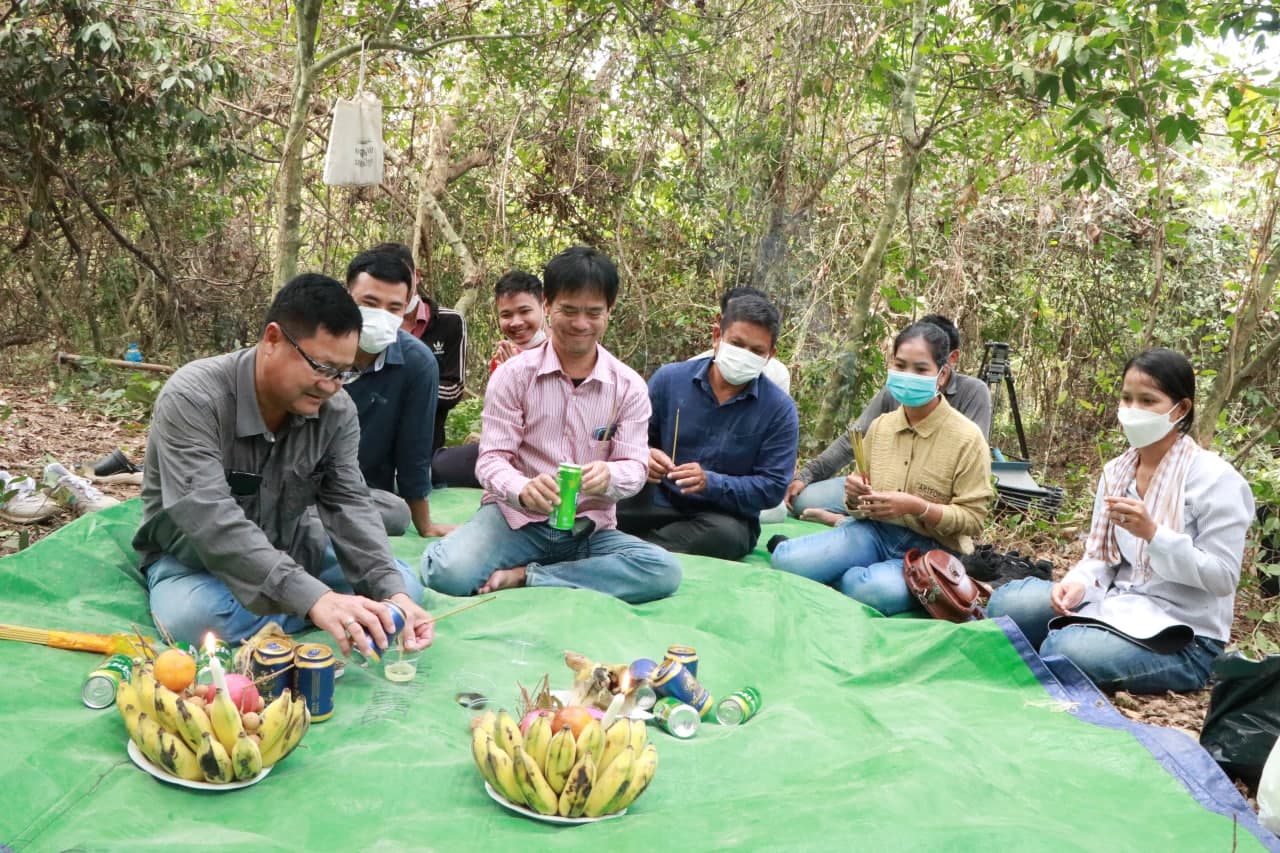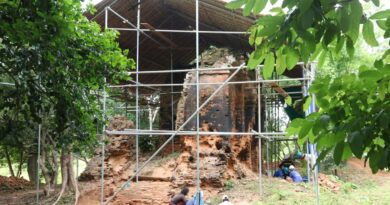អាជ្ញាធរជាតិអប្សរា ជួសជុលពង្រឹងតួប៉ម A នៃប្រាសាទគោកពោធិ៍ -APSARA National Authority to repair and strengthen Tower A of Kork Po Temple- 26 July 2024
បើទោះបីជាក្រុមប្រាសាទខ្លះ មានទីតាំងនៅតំបន់ឆ្ងាយៗយ៉ាងណា ក៏អាជ្ញាធរជាតិអប្សរា តែងតែយកចិត្តទុកដាក់ថែទាំ និងជួសជុលប្រាសាទបុរាណទាំងនោះ។ ជាក់ស្តែង ក្រុមអ្នកជំនាញនៃអាជ្ញាធរជាតិអប្សរា កំពុងជួសជុលពង្រឹងតួប៉ A នៃប្រាសាទគោកពោធិ៍ ដែលសាងសង់ពីឥដ្ឋ លាយជាមួយថ្មភក់ ធ្វើជាគ្រឿងលម្អ មានអាយុកាលជាង១ពាន់ឆ្នាំ ដើម្បីបន្តភាពរឹងមាំនៃប្រាសាទនេះឡើងវិញ បន្ទាប់ពីពិនិត្យឃើញថា បានរងការខូចខាតខ្លាំង ទាមទារឱ្យជួសជុលសង្គ្រោះជាបន្ទាន់។





